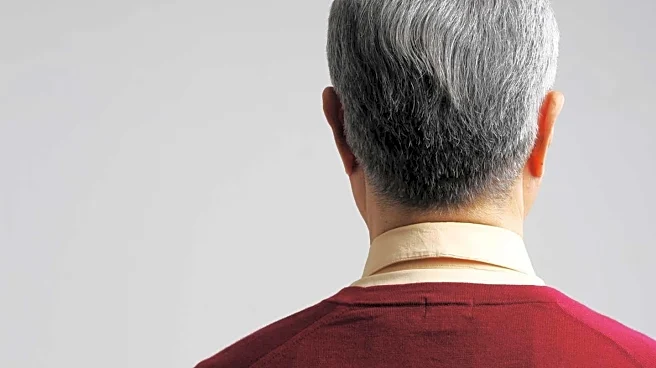What is the story about?
What's Happening?
Recent studies have highlighted a significant increase in loneliness among middle-aged men, particularly in the United States. Data from the Survey Center on American Life indicates that 15% of men reported having no close friends in 2021, a stark rise from 3% in 1990. This trend is more pronounced among heterosexual men compared to their gay counterparts. The decline in male friendships is attributed to cultural shifts in masculinity and the reduction of 'third spaces' for socialization. The lack of social connections is linked to severe health risks, including higher mortality rates. The phenomenon is not limited to the U.S., with similar patterns observed in Australia, where middle-aged men are three times more likely to experience high-level loneliness than older men.
Why It's Important?
The growing loneliness among middle-aged men poses a public health challenge, as social isolation is associated with increased risks of mental health issues and early mortality. This demographic shift reflects broader cultural changes in gender roles and social structures, impacting men's ability to form and maintain friendships. Addressing this issue is crucial for improving men's health outcomes and reducing the societal burden of loneliness-related health problems. The trend also highlights the need for better social infrastructure to support male socialization and mental well-being.
What's Next?
Efforts to combat male loneliness may involve creating more opportunities for social interaction outside traditional settings like work and home. Community programs and initiatives aimed at fostering male friendships could play a vital role. Additionally, public health campaigns might focus on raising awareness about the importance of social connections for men's health. Policymakers and health organizations may need to collaborate to develop strategies that address the root causes of male loneliness and promote healthier social environments.
Beyond the Headlines
The issue of male loneliness also raises questions about the impact of societal expectations on men's mental health. The traditional model of stoic masculinity may hinder men's ability to seek help and form meaningful relationships. Rethinking cultural norms around masculinity could lead to more supportive environments for men to express vulnerability and build connections. This shift could have long-term benefits for men's health and well-being.

















